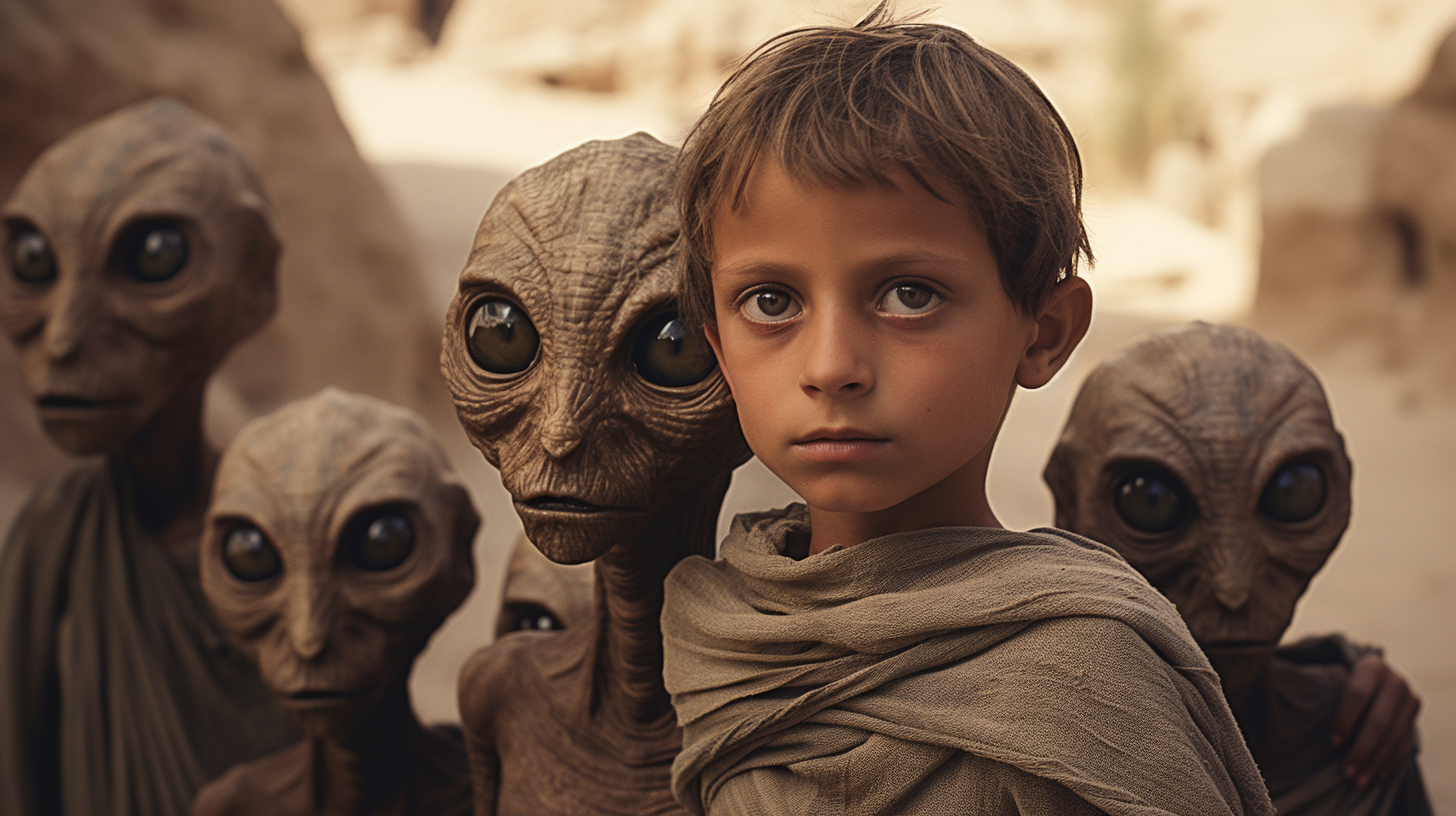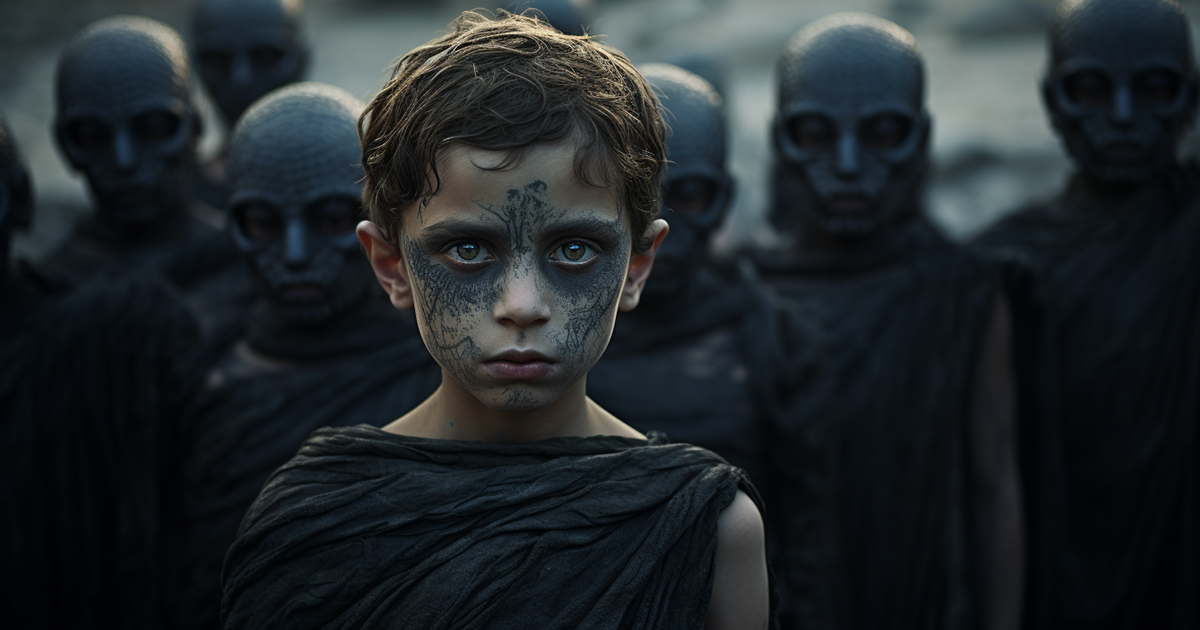In the dynamic streets of sixth-century BC Greece, a peculiar event transpired, destined to be shrouded in mystery. In a fateful encounter during his journey back, Mnesarchus, a voyager, stumbled upon an abandoned infant seemingly transfixed by the sun’s rays.
The infant, nourished by the dew from a nearby tree, was named Astraios by Mnesarchus, a moniker symbolizing “star child” in the ancient Greek language.
Astraios did not walk his path alone; he was embraced and raised alongside Pythagoras, the renowned philosopher and mathematician, and his two siblings. A mystical figure, he seamlessly integrated into their family, carrying a hidden destiny.
According to the Greek myths recounted by Antonius Diogenes, Mnesarchus entrusted Pythagoras, a luminary in the realm of mathematics, with the upbringing and education of Astraios.
While Pythagoras’ mathematical achievements are well-documented, proponents of ancient astronaut theories present a fascinating alternative perspective. They suggest that Pythagoras might have received advanced knowledge from Astraios, the enigmatic star child.
This theory revolves around the concept that Astraios descended to Earth with a specific mission – to impart wisdom and enlightenment to Pythagoras. This knowledge, steeped in mystical doctrines, is believed to have laid the groundwork for profound revelations in antiquity.

Therefore, we become entangled in the narrative of a star child whose origins are veiled in secrecy, contemplating the possibility that Astraios could have been one of the early extraterrestrial beings dispatched to our planet.
The question arises: Was this extraordinary child truly the mentor to one of history’s eminent minds? Furthermore, considering the Greek tales of powerful beings descending from the heavens, could Astraios have emerged from a divine union between mortals and gods? Such stories of hybrid creatures are not unique to the Greeks; numerous ancient civilizations, including the Egyptians, recount similar sagas.
In contemporary discussions, individuals often refer to such beings as “star children,” a term gaining popularity across various circles. These star children are envisioned as a distinctive group, possessing exceptional intellect and abilities surpassing human understanding.
Navigating through Astraios’ story prompts reflection on whether it mirrors an ancient depiction of a star child. If star children indeed traversed the annals of Earth, we are compelled to delve into the origins of their remarkable insight and inexplicable talents.
Some argue that science reveals the existence of ten latent etheric DNA strands beyond the well-known double helix structure in humans. These additional strands have remained inactive through recorded history.
Could these dormant strands have been deliberately engineered by extraterrestrial entities, selectively awakening in chosen individuals over epochs to propel humanity forward?
Watch the Video:
The tale of Astraios and his connection with Pythagoras acts as an intriguing gateway to the mysteries of ancient Greece. It urges us to redefine the boundaries of human potential and contemplate the potential influence of extraterrestrial forces on our shared history.
While the enigmas of these star children may always remain elusive, their mysterious essence continues to captivate our imagination and inspire our quest for enlightenment.
